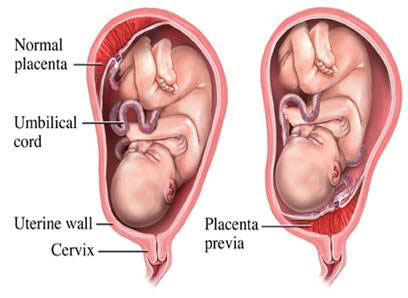Low progesterone levels during pregnancy enhance the risk for miscarriage. Find out the function of progesterone hormone and causes of low progesterone levels during pregnancy. The ovaries produce progesterone in order to enable the uterus to prepare for pregnancy and maintaining it thereafter. So if you happen to have low levels of progesterone during pregnancy, it implies an enhanced risk for miscarriage. One needs to be thus careful and the doctor too needs to monitor the levels and suggest medications accordingly. As you take care, here are the reasons that cause low progesterone levels. This will help you to take precautions and ensure that the pregnancy is successful. In this articleWhy Are Progesterone Levels Important?The Function of ProgesteroneThe Levels Vis-A-Vis Time PeriodCauses of Low Progesterone LevelsWhy Are Progesterone Levels Important? The levels of the different hormones are very crucial to determine the status of the pregnancy. First of all, women with low levels of progesterone find it extremely difficult to conceive, and even after they manage to, they need to be very careful regarding the levels so that the pregnancy does not fail. Progesterone is actually considered to be the most vital hormone during the early stages of pregnancy as it promotes the effective growth of blood vessels apart from preventing the uterus from getting contracted. The Function of Progesterone: The inner lining of the uterus gradually thickens due to this progesterone hormone. So once the conception takes place after the egg is fertilised by the sperm, it gets a ready condition for successful implantation. Following this, the hormone plays a vital role is seeing through the entire pregnancy term. The Corpus Luteum is the name of the follicle that releases the egg, and progesterone is the hormone that is produced by this very follicle. This production continues during the whole luteal phase of the mother’s menstrual cycle, which is 12-16 days. Post fertilisation, progesterone is consistently produced till the placenta is ready to assume the role as its production source. This does not happen until about ten weeks after conception. The Levels Vis-A-Vis Time Period: The first trimester of the pregnancy sees a lot of variations in the progesterone levels, which is natural. During the first six weeks you might find that the levels are on at an average 12-20 ng/ml, which can go up to 9-47 ng/ml and stay more or less the same throughout the rest of the pregnancy term. As per the doctors, the levels of the progesterone hormones should have a consistent rise from 1-3 ng/ml in every two three days till they reach the peak for the respective trimester. If it happens to be probable miscarriage or an ectopic pregnancy, the levels of progesterone will be quite lower than the above mentioned units right at the onset of the pregnancy and it will not increase thereafter too. Causes of Low Progesterone Levels Diseases like disorder of the adrenal glands or low thyroxin secretion are attributed to low progesterone levels. Underactive thyroid gland lowers the secretion of the progesterone hormone as both as interdependent on each other for effective or the desired secretion levels. All the symptoms associated with thyroid disorder can be noticed then. Finally, as you follow the medications suggested by the doctor for maintaining the progesterone levels, you need to be careful and disciplined as you follow them. Like, if you already have a history of low progesterone levels, you should be using a progesterone creme as recommended by your gynaecologist. After a confirmed pregnancy test, you must take note that the progesterone treatments are started early, before conception so that the results are positive and the pregnancy meets its full term.
Low progesterone levels during pregnancy enhance the risk for miscarriage. Find out the function of progesterone hormone and causes of low progesterone levels during pregnancy. The ovaries produce progesterone in order to enable the uterus to prepare for pregnancy and maintaining it thereafter. So if you happen to have low levels of progesterone during pregnancy, it implies an enhanced risk for
miscarriage. One needs to be thus careful and the doctor too needs to monitor the levels and suggest medications accordingly. As you take care, here are the reasons that cause low progesterone levels. This will help you to take precautions and ensure that the
pregnancy is successful.
Why Are Progesterone Levels Important?
The levels of the different hormones are very crucial to determine the status of the pregnancy. First of all, women with low levels of progesterone find it extremely difficult to conceive, and even after they manage to, they need to be very careful regarding the levels so that the pregnancy does not fail. Progesterone is actually considered to be the most vital hormone during the early stages of pregnancy as it promotes the effective growth of blood vessels apart from preventing the uterus from getting contracted.
The Function of Progesterone:
The inner lining of the uterus gradually thickens due to this progesterone hormone. So once the conception takes place after the egg is fertilised by the sperm, it gets a ready condition for successful implantation. Following this, the hormone plays a vital role is seeing through the entire pregnancy term. The Corpus Luteum is the name of the follicle that releases the egg, and progesterone is the hormone that is produced by this very follicle. This production continues during the whole luteal phase of the mother’s menstrual cycle, which is 12-16 days. Post fertilisation, progesterone is consistently produced till the placenta is ready to assume the role as its production source. This does not happen until about ten weeks after conception.
The Levels Vis-A-Vis Time Period:
The first trimester of the pregnancy sees a lot of variations in the progesterone levels, which is natural. During the first six weeks you might find that the levels are on at an average 12-20 ng/ml, which can go up to 9-47 ng/ml and stay more or less the same throughout the rest of the pregnancy term. As per the doctors, the levels of the progesterone hormones should have a consistent rise from 1-3 ng/ml in every two three days till they reach the peak for the respective trimester. If it happens to be probable miscarriage or an ectopic pregnancy, the levels of progesterone will be quite lower than the above mentioned units right at the onset of the pregnancy and it will not increase thereafter too.
Causes of Low Progesterone Levels
Diseases like disorder of the adrenal glands or low thyroxin secretion are attributed to low progesterone levels. Underactive thyroid gland lowers the secretion of the progesterone hormone as both as interdependent on each other for effective or the desired secretion levels. All the symptoms associated with thyroid disorder can be noticed then.
Finally, as you follow the medications suggested by the doctor for maintaining the progesterone levels, you need to be careful and disciplined as you follow them. Like, if you already have a history of low progesterone levels, you should be using a progesterone creme as recommended by your gynaecologist. After a confirmed pregnancy test, you must take note that the progesterone treatments are started early, before conception so that the results are positive and the pregnancy meets its full term.

































